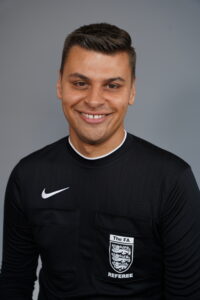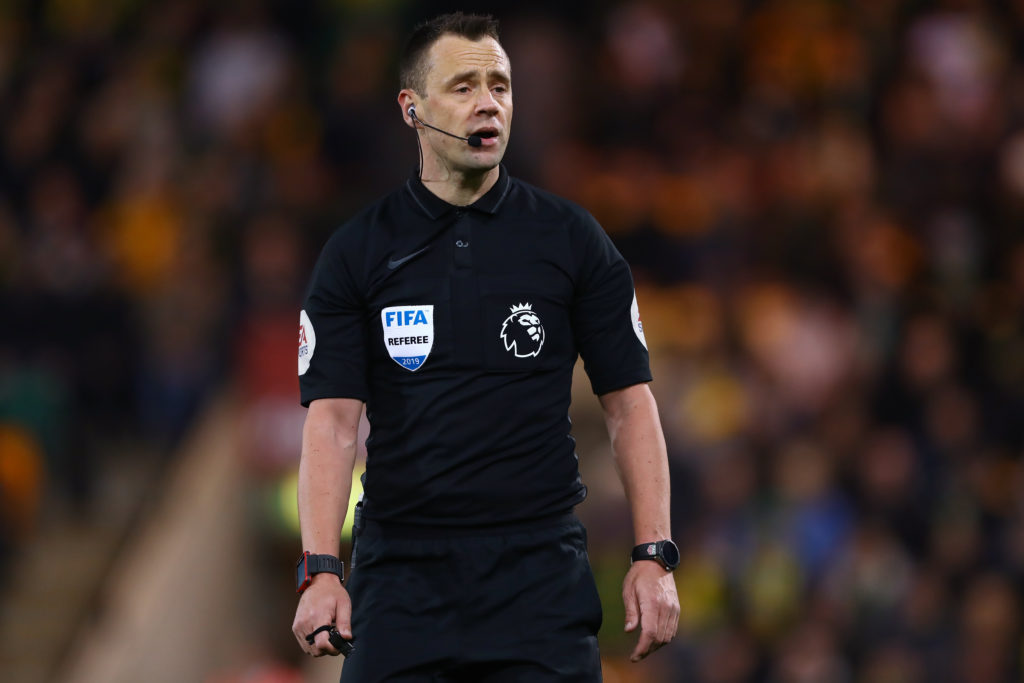This example represents a challenge many officials experience.
The Client:
A 17 year old referee who has joined their county’s FA Centre of Refereeing Excellence (CORE) group following a promising first season officiating.
The Challenge:
The client was a promising official, who displayed excellent management and communication skills. Their positioning and movement aided them significantly too. Where they struggled on occasions was with the decision making side of refereeing. Analysing Key Match Incidents (KMIs) under pressure from a number of players, being surrounded by physically bigger men and when officiating physical teams, who were huge in size. In these fixtures the referee let fear and self-doubt get the better of them and would make uncharacteristic mistakes. Frustration could then cost them where they could then “get in their own head” and lose a lot of confidence very quickly. This happened a lot in appointments which had more riding on them for the teams of players.
The Objectives:
- To help the referee quieten his mind when they were under pressure.
- To stop placing too much focus on the teams and players which their decisions would influence.
- To have confidence in themself and their decision making no matter what game they were officiating.
- To trust their judgment and positioning when making decisions.
- To improve their communication skills with players and club officials.
- To help them recognise and referee to their strengths, no matter which teams they were appointed to officiate.
- To stop worrying what their coaches and Referee Development Officer/Manager thought of them.
The Process:
Over a twelve-week period we met every 2 weeks for 60 minutes using Zoom video conferencing. The sessions included:
- A needs analysis session conducted by myself, the Referee Educator with the referee. Understanding why they officiate, their education and family background.
- We produced a performance profile (looking at technical, tactical, psychological, physical and lifestyle components), outlining their long term, mid-term and short-term goals, as well as, creating manageable objectives (mini-goals) between sessions.
- We reviewed what expectations they placed upon themself and others that helped and hindered their performance (diving in deep and looking at specific skills and statistics).
- Emotional Intelligence, the capacity to be aware and consider how the client thought, felt and behaved in specific situations and with players, club officials and colleagues was unpicked.
- We looked at ways that they could seek to increase their levels of assertiveness.
- They discovered key ingredients, “enablers” that helped them perform with confidence and with less fear.
- We sought to help them understand more about “locus of match control” and take ownership of the controllables.
- Game face, brave face, confident face and calm face exercises were discussed and strategised.
- Different scenarios were visualised when they were at their best, when they were faced with challenging players and club officials, and when they made mistakes so that the referee was better mentally prepared for future difficult appointments.
- Mini goals (commitment to the decision made, positive body language, eye contact and effective communication with colleagues) were agreed in matches.
The Conclusion
- The referee found the sessions very helpful and enjoyed the practical nature of the mini-goals that we set together.
- They slowly developed their mental toughness and a growth mindset.
- They had a mindset shift and began to see difficulties in a different light.
- Their routines for fixtures became more consistent, which helped him especially when facing more challenging appointments.
- In key fixtures they became more confident in themself and their decision making skills.
- Their presence grew on the field of play, especially in challenging moments.
I sincerely hope that this case study has given you a flavour of how we support young referees. This type of challenge is very common and can be overcome with expert support and guidance, which is something we specialise in.
If you’d like to learn more about how we help officials, please feel free to check out our library of resources.
At The Third Team I work individually and in collaboration with different professionals where I have developed workshops and 1-2-1 sessions associated with Resilience and Mental Toughness Development to help referees. The workshops and 1-2-1 sessions are interactive, where referees are encouraged to open up and share their experiences to help themselves and each other.
Feel free to contact me if you’d like to know more about my workshops or 1-2-1 sessions and how I could help you or your officials.
Best Wishes,

Nathan Sherratt
Referee Educator & Managing Director of The Third Team

Nathan Sherratt
Nathan Sherratt, Referee Educator, Resilience Trainer and Managing Director of The Third Team. A Mental Toughness Practitioner based in County Durham, North East England.

